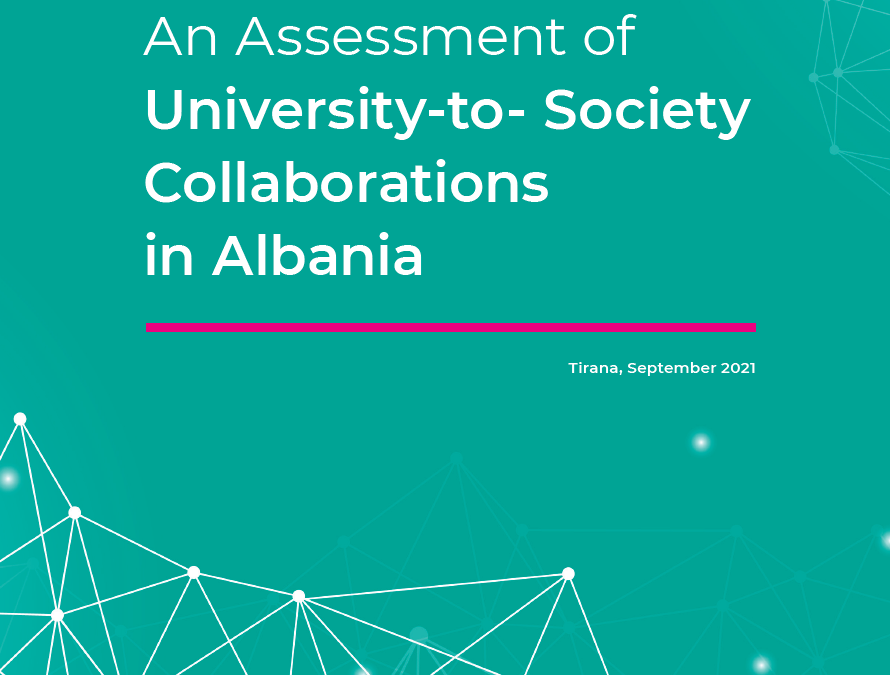Higher education, research, and innovation are areas with immense potential in bringing added value to the economy and society. Collaboration of universities with other stakeholders in society, such as industry/business, government/policy, and civil society, can contribute to the development of human capital and talents, to the creation of sustainable innovation ecosystems, and to building a strong knowledge-based economy and resilient societies. Albania has only recently started to develop policy instruments to enhance university-to-society collaborations. Universities in Albania are undergoing major transformative processes and are yet to consolidate their role in the economy and society.
Like other economies in the Western Balkans, Albania is part of key European programmes that support higher education, research, and innovation, such as Erasmus+, European Solidarity Corps, Creative Europe, and Horizon Europe. The European Union has placed the Western Balkans as a priority region in the new Digital Education Action Plan, the European Education Area, and the European Research Area. However, Albanian universities face considerable challenges in terms of quality of research, transfer of knowledge, collaboration with external stakeholders, and generation of innovation with impact.
Against this backdrop, a consortium of partners from academia, policy, business, and civil society came together to develop a project proposal for the Erasmus+ Programme of the European Union, with the aim of fostering effective and sustainable university-to-society collaboration in Albania, with impact in the development and European integration process of the country. Led by the Mediterranean University of Albania and in partnership with 11 other partners in Albania, Italy, Serbia, and Germany, the “University-to-Society Innomediaries in Albania: Co-Production of Knowledge and Research That Matters” Project (USIA) will promote the Quadruple Helix Model in Albania and support five partner universities in establishing and enhancing Knowledge Transfer & Innovation Brokerage Units. SCiDEV is in charge of Work Package ‘Preparation’ and facilitating the links between universities and other actors in society.
This report is the result of the Work Package ‘Preparation’ of the USIA Project, managed by the Science and Innovation for Development (SCiDEV) Centre. The goal is to assess the current collaborations between universities and external stakeholders in Albania to inform the other Work Packages and activities of the USIA Project. SCiDEV Team of researchers expanded this aim and conducted a thorough assessment and analysis by providing recommendations for all stakeholders.
The research study shows that in Albania there is little collaboration between universities and other actors that is well-institutionalized, sustainable, funded, and promoted. Most of the existing collaborations take place with the business sector, followed by those with civil society and policy, and less so with the media. Most of the collaboration is established on an individual level, apart from collaboration with the policy sphere where the majority of collaboration happens on an institutional level.
Findings from this research study indicate that the main factors that hinder university-to-society collaboration include low funding or research, lack of information and knowledge about university research activities, academic offer, and innovation. In addition, lack of strategy (by all actors) for pursuing collaborative projects in a sustainable manner and outdated curricula seem to be hindering factors in fostering university-to-society collaboration. Most collaborations remain donor-dependent and are project-based, rather than forming a crucial part of the vision and strategy of involved actors. Limited drivers and incentives for researchers to engage in collaborations with other actors also affect the level and frequency of collaboration.

0 comments